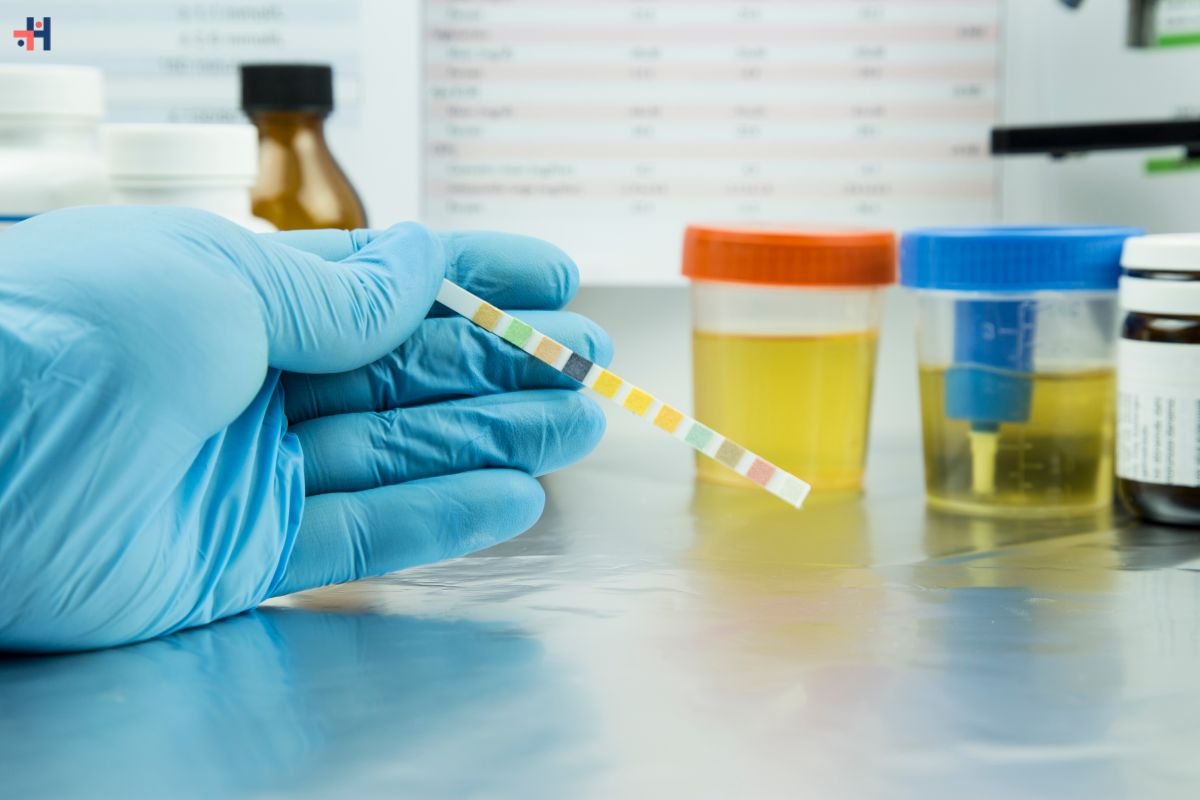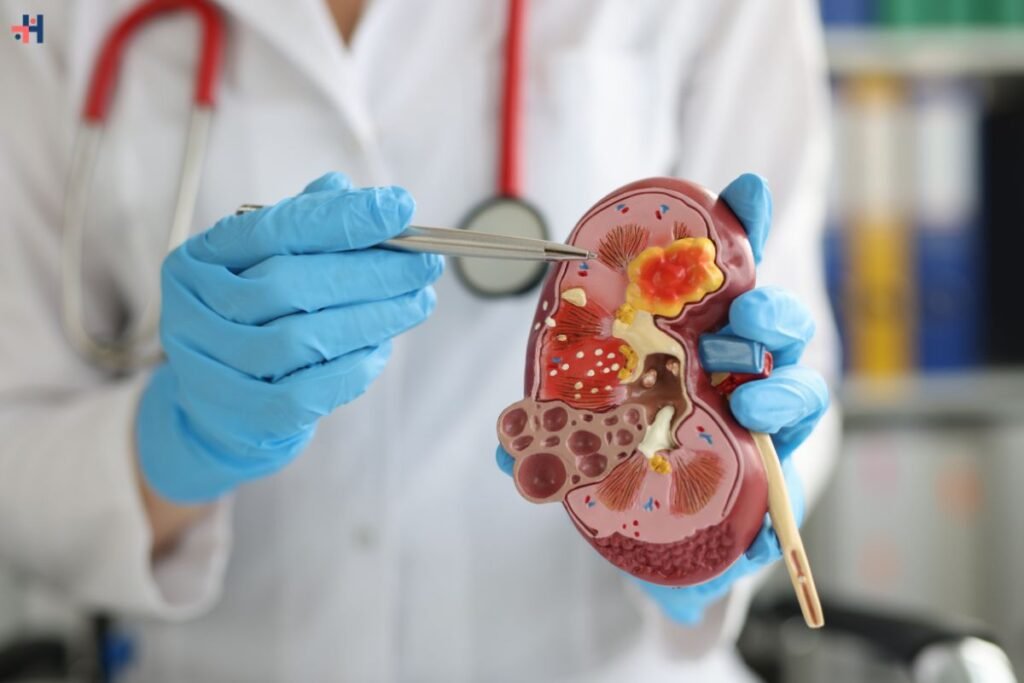Chronic Kidney Disease (CKD) is a prevalent and progressive condition that affects millions of people worldwide. As a silent epidemic, CKD often goes undiagnosed until it reaches advanced stages, posing significant health risks and complications. Understanding the causes, symptoms, and management of chronic kidney disease is essential for early detection and effective treatment.
What is Chronic Kidney Disease?
Chronic kidney disease, also known as chronic renal disease, refers to the gradual loss of kidney function over a period of months or years. The kidneys play a crucial role in filtering waste products and excess fluids from the blood, maintaining a balance of electrolytes, and regulating blood pressure. When the kidneys are damaged, they lose their ability to perform these functions efficiently, leading to the accumulation of toxins and fluids in the body.
CKD is categorized into five stages based on the glomerular filtration rate (GFR), which measures how well the kidneys are filtering blood. Stage 1 indicates mild kidney damage with normal or increased GFR, while Stage 5 represents kidney failure with severely reduced GFR. Early detection and management are crucial to slow the progression of the disease and prevent complications.
Causes of Chronic Kidney Disease
Several factors contribute to the development of chronic kidney disease. The most common causes include:
1. Diabetes
Diabetes, particularly type 2 diabetes, is the leading cause of CKD. High blood sugar levels damage the blood vessels in the kidneys, impairing their ability to filter waste effectively. Over time, this can lead to diabetic nephropathy, a condition characterized by progressive kidney damage.
2. Hypertension
High blood pressure, or hypertension, is another major risk factor for chronic kidney disease. Hypertension damages the blood vessels in the kidneys, reducing their filtering capacity. The increased pressure can also lead to scarring and inflammation of kidney tissues.
3. Glomerulonephritis

Glomerulonephritis refers to inflammation of the glomeruli, the tiny filtering units within the kidneys. This condition can result from infections, autoimmune diseases, or genetic disorders, and it often leads to chronic kidney damage if left untreated.
4. Polycystic Kidney Disease
Polycystic kidney disease (PKD) is a genetic disorder characterized by the growth of numerous cysts in the kidneys. These cysts can enlarge the kidneys and impair their function, eventually leading to chronic kidney disease.
5. Other Factors
Other factors contributing to CKD include recurrent urinary tract infections, prolonged use of certain medications (such as nonsteroidal anti-inflammatory drugs), and exposure to toxins or heavy metals. Additionally, lifestyle factors like smoking, obesity, and poor diet can increase the risk of developing chronic kidney disease.
Symptoms of Chronic Kidney Disease
Chronic kidney disease is often asymptomatic in its early stages, earning it the moniker “silent disease.” As kidney function declines, symptoms may become more apparent. Common symptoms of CKD include:
1. Fatigue and Weakness
As the kidneys fail to filter waste products effectively, toxins build up in the bloodstream, leading to fatigue and generalized weakness.
2. Swelling
Reduced kidney function can cause fluid retention, resulting in swelling (edema) in the legs, ankles, feet, and sometimes the face and hands.
3. Changes in Urination
Changes in urination patterns, such as increased frequency (especially at night), decreased urine output, or dark-colored urine, may indicate kidney dysfunction.
4. Shortness of Breath
Fluid buildup in the lungs, a condition known as pulmonary edema, can cause shortness of breath, particularly during physical activity or while lying down.
5. High Blood Pressure
Kidneys play a vital role in regulating blood pressure. CKD often leads to uncontrolled hypertension, which can exacerbate kidney damage.
6. Nausea and Vomiting
Accumulation of waste products in the blood can cause gastrointestinal symptoms such as nausea, vomiting, and loss of appetite.
7. Muscle Cramps
Electrolyte imbalances, particularly low levels of calcium and high levels of phosphorus, can lead to muscle cramps and twitching.
8. Itching
Waste buildup in the blood can cause severe itching, known as uremic pruritus, which is common in advanced stages of CKD.
Diagnosis of Chronic Kidney Disease
Early diagnosis of chronic kidney disease is critical for effective management and slowing disease progression. Several tests and procedures are used to diagnose CKD:
1. Blood Tests
Blood tests measure levels of creatinine and blood urea nitrogen (BUN), which are waste products filtered by the kidneys. Elevated levels of these substances indicate reduced kidney function. Additionally, blood tests can assess electrolyte levels, hemoglobin, and other markers of kidney health.
2. Urine Tests

Urine tests can detect abnormalities such as proteinuria (excess protein in the urine) and hematuria (blood in the urine), which are indicative of kidney damage. A urine albumin-to-creatinine ratio (UACR) test is often used to quantify protein levels in the urine.
3. Imaging Studies
Imaging studies, such as ultrasound, CT scans, and MRI, provide visual assessment of kidney size, structure, and any abnormalities such as cysts or tumors.
4. Kidney Biopsy
In some cases, a kidney biopsy may be performed to obtain a small tissue sample for microscopic examination. This helps in diagnosing specific types of kidney disease and determining the extent of damage.
5. Glomerular Filtration Rate (GFR)
GFR is calculated using a formula that takes into account creatinine levels, age, sex, and body size. It provides an estimate of how well the kidneys are filtering blood and is used to stage chronic kidney disease.
Management and Treatment of Chronic Kidney Disease
While there is no cure for chronic kidney disease, early intervention and proper management can significantly slow its progression and reduce complications. Treatment strategies include:
1. Lifestyle Modifications
Adopting a healthy lifestyle is crucial for managing CKD. This includes maintaining a balanced diet low in salt, potassium, and phosphorus, quitting smoking, limiting alcohol intake, and engaging in regular physical activity. Weight management and stress reduction are also important.
2. Medication
Several medications are prescribed to manage the symptoms and complications of CKD:
- Blood Pressure Medications: Angiotensin-converting enzyme (ACE) inhibitors and angiotensin II receptor blockers (ARBs) help lower blood pressure and reduce proteinuria, protecting the kidneys from further damage.
- Diuretics: These medications help reduce fluid retention and control swelling.
- Phosphate Binders: Used to manage high phosphorus levels, which can cause bone and cardiovascular problems.
- Erythropoiesis-Stimulating Agents (ESAs): These drugs treat anemia by stimulating red blood cell production.
- Statins: Used to manage high cholesterol levels, reducing the risk of cardiovascular disease.
3. Monitoring and Regular Check-ups
Regular monitoring of kidney function, blood pressure, blood sugar levels, and other relevant parameters is essential for adjusting treatment plans and preventing complications. Patients should have regular check-ups with their healthcare provider.
4. Managing Underlying Conditions
Effective management of underlying conditions such as diabetes and hypertension is crucial for slowing the progression of CKD. This may involve working closely with specialists, such as endocrinologists or cardiologists, to optimize treatment plans.
5. Dialysis and Transplantation
In advanced stages of CKD (Stage 5 or end-stage renal disease), kidney function is severely impaired, and dialysis or kidney transplantation may be necessary:
- Dialysis: This medical procedure artificially removes waste products and excess fluids from the blood. There are two main types of dialysis: hemodialysis (performed using a machine) and peritoneal dialysis (using the lining of the abdomen).
- Kidney Transplantation: A kidney transplant involves surgically placing a healthy kidney from a donor into the patient’s body. This can restore normal kidney function, but patients need to take immunosuppressive medications to prevent rejection.
Preventing Chronic Kidney Disease
Preventing chronic kidney disease involves addressing risk factors and promoting kidney health through lifestyle and medical interventions. Key preventive measures include:
1. Controlling Blood Sugar Levels
For individuals with diabetes, maintaining optimal blood sugar levels is crucial to prevent kidney damage. This involves regular monitoring, adherence to medication, and following a healthy diet and exercise regimen.
2. Managing Blood Pressure
Keeping blood pressure within a healthy range is essential for protecting kidney function. Lifestyle changes, medication, and regular monitoring are important strategies for managing hypertension.
3. Maintaining a Healthy Diet
A kidney-friendly diet is low in sodium, phosphorus, and potassium. It should include plenty of fruits, vegetables, whole grains, and lean proteins. Limiting processed foods and avoiding excessive protein intake can also help protect the kidneys.
4. Staying Hydrated

Adequate hydration supports kidney function by helping to flush out toxins. However, individuals with CKD should follow their healthcare provider’s advice on fluid intake, as excessive fluid can worsen symptoms.
5. Regular Exercise
Engaging in regular physical activity helps control weight, lower blood pressure, and improve overall health. Aim for at least 30 minutes of moderate exercise most days of the week.
6. Avoiding Harmful Substances
Limiting or avoiding the use of nonsteroidal anti-inflammatory drugs (NSAIDs), smoking, and excessive alcohol consumption can reduce the risk of kidney damage.
7. Regular Health Screenings
Routine health check-ups and screenings for kidney function, blood pressure, and blood sugar levels can help detect CKD early and initiate timely intervention.
Conclusion
Chronic kidney disease is a significant health concern that requires attention and proactive management. By understanding the causes, recognizing the symptoms, and adopting preventive measures, individuals can protect their kidney health and improve their quality of life. Early diagnosis and effective management are key to slowing the progression of CKD and reducing the risk of complications. With the right approach, those affected by chronic kidney disease can lead healthier, more fulfilling lives.










